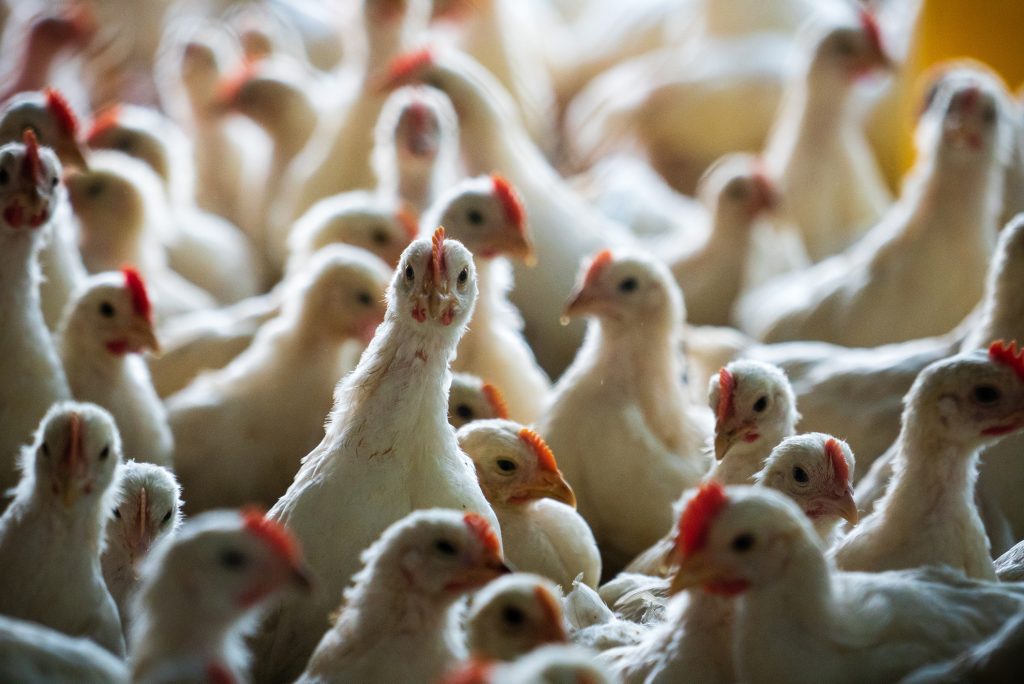Reposted from: https://www.bloomberg.com/news/articles/2022-07-27/us-chicken-merger-spells-end-to-abusive-pay-system-for-farmers#xj4y7vzkg
A merger of two US chicken companies may transform how American poultry farmers get paid, as it does away with a compensation system criticized as unfair and abusive.
As part of the conditions US government officials set for the combination, Wayne-Sanderson Farms — the merger of the sixth- and third-largest American chicken producers — won’t be able to use a so-called tournament system to pay growers.
Most processors including Tyson Foods Inc. and Pilgrim’s Pride Corp. compensate farmers via the method that pits them against each other, and rewards those who end up with the biggest birds. That’s even though companies control and own everything from feed to the animals themselves, and farmers only provide housing and labor. Wayne-Sanderson Farms will be the first major poultry company to pay farmers a guaranteed base rate.
The agreement is a win for advocates pushing for more pay and transparency for farmers, and it clears the way for the Agriculture Department to provide more protections for farmers through rules it has proposed to regulate the tournament system.
“We see this as reminiscent of the 1920s,” when the US government cracked down on meatpackers’ growing market power by preventing them from owning retail locations, said Joe Maxwell, a former lieutenant governor of Missouri and co-founder of Farm Action, which advocates against corporate monopolies in food. “We parallel this as that historic.”
The settlement could be just the beginning. It proves that reform is possible, and administration officials are optimistic such changes can be put in place without making chicken companies unprofitable, according to a senior USDA official.
The Biden Administration has targeted the meat sector for making record profits with consumers paying high prices even as farmers miss out on the winnings. Earlier this year, Biden issued an executive order that included $1 billion in federal aid to help smaller meat producers take on big packers. The meat industry has also been criticized for being too concentrated, which has resulted in a slew of price-fixing and antitrust lawsuits. Meatpackers have paid hundreds of millions in settlements with retailers in recent years.
Getting companies such as Cargill Inc., one of the world’s biggest crop traders and beef producers, to agree not to use the tournament system as part of the $4.5-billion takeover of Sanderson Farms shows that it’s possible to make money without the system.
Cargill along with Continental Grain Co. first proposed the deal to combine Continental-owned Wayne Farms nearly a year ago. The new combined company will account for about 15% of the US poultry market, according to Maxwell.
Read more: US poultry firms reach $85 million DOJ settlement on wage scheme
“The DOJ got 15% of the market to agree to end the tournament system and end wage-sharing information,” Maxwell said. “They would never agree to do it if it wasn’t going to be profitable.”
Critics say the tournament system rankings are often opaque, open to abuse, and subject to factors more in control of the processor. The system has come under fire especially over the last decade as more stories of poultry farmers forced into bankruptcy due to method have come into public view.
US Agriculture Secretary Tom Vilsack is collecting public comments on proposed rules that would weaken chicken processors’ advantage over poultry farms.
There’s still anxiety among farmers about the new order of things. Trina McClendon has raised chickens for Sanderson Farms for decades in southwest Mississippi. She opposed the chicken merger and said the new company should consult with growers to determine the new pay system. For now, she’s not optimistic conditions will improve. As it is, many farmers are deep in debt and still fear losing a contract with a poultry company could make them go bankrupt.
“Farmers are a little concerned and afraid for what’s coming,” McClendon said by phone. “I have never met a farmer who lived in a mansion.”



